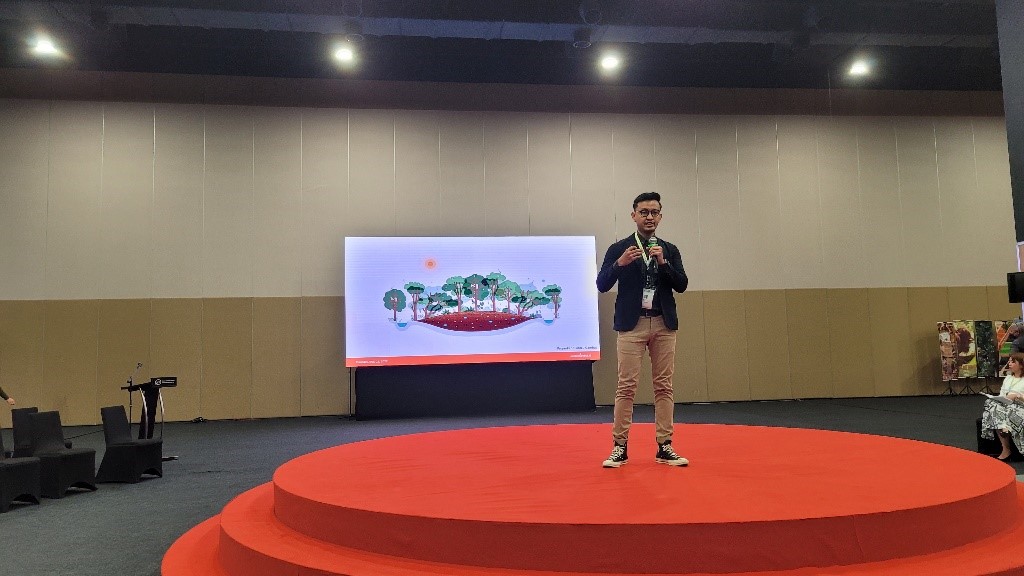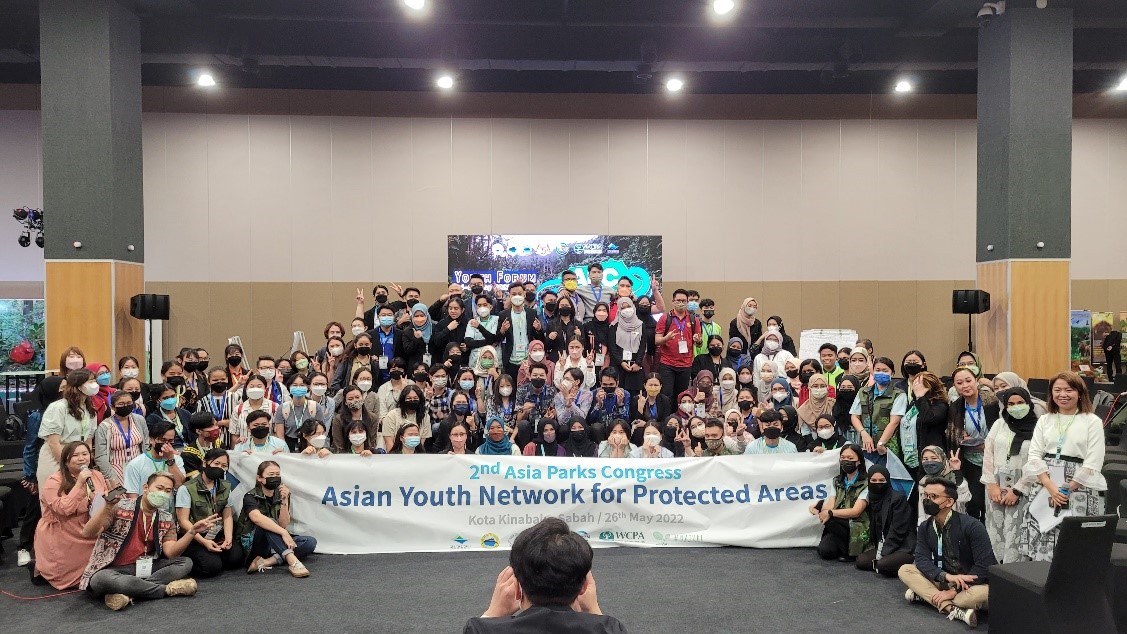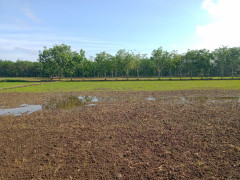Pantau Gambut Jambi Regional Consultation: "Strengthen Monitoring Through Joint Advocacy"
By Angga Septia
Pantau Gambut Goes to The 2nd Asia Parks Congress

Pantau Gambut was chosen to attend this event as one of the representatives of the Indonesia’s Young Delegates who focus on working in the field of protected and conservation areas. At the congress, Pantau Gambut also had the opportunity to promote the important role of peatlands and convey Pantau Gambut's experience as an independent organization in monitoring issues and the development of commitments to protect peat ecosystems in Indonesia. Additionally, in the Youth Forum session, the organization shared the challenges of managing peat ecosystems in Indonesia as one of the protected areas in which their conditions are increasingly threatened for development and economic interests. During this session, the Asian Youth Network for Protected Areas was also formed which aims to gather youth and young professionals from all over Asia to be more concerned about issues in protected and conservation areas. Furthermore, with this network it is hoped that there will be an exchange of information from each country in Asia regarding the latest ongoing environmental issues in each country.

For nearly a week following this Asian-level grand meeting, all participants took part in a series of activities starting from plenary sessions, focus group discussions, side events, and field visits to one of the natural destinations offered by the organizers. There were at least six group discussions with a focus on conservation issues, including: "Nature-based Solutions for Health and Well-being", "Governance of Protected and Conserved Areas", "Connectivity and Transboundary Conservation", "Effective Protected and Conservation Areas ", "Economic and Financial Sustainability of Protected" and "Conserved Areas, Urban Conservation and New Generation". In each discussion group, there were around 10 – 15 speakers who conveyed their experiences or research results according to the specified theme. Participants were allowed to choose the presentation session that they find interesting and can move flexibly to other discussion groups. The results of the discussion of each group will be formulated into the Kota Kinabalu declaration document which is the main output of this meeting.
Of the six discussion groups, Pantau Gambut chose to attend group two which discussed the management of protected and conservation areas. This group discussed the accountable role played by authorities and stakeholders regarding nature conservation including national laws as well as through customary laws, governments at all levels, indigenous peoples and local communities, and private organizations. It also discussed the principles of equity and justice including recognition of the rights of stakeholders, procedures for fair treatment of communities, and considerations of how the benefits of protected and conservation areas can be shared for economic interests while remaining sustainable.
The presentations also highlighted the contributions of government, private sector, civil society (including the role of women and youth) as well as indigenous people and local communities which effectively contribute to ecological, social, cultural and economic challenges in the management of protected and conservation areas. Based on the forum agreement, several actions have been identified, including:
- Empowering women in conservation activities through involvement in management and planning activities of protected areas
- Use of traditional knowledge in species and habitat protection
- Culture-based conservation by developing a governance model for indigenous peoples
- Economic empowerment of local communities through collaborative management of protected and conservation areas
- Develop protected area models and policies to recognize community rights
From the tour options offered, Pantau Gambut chose to visit Kinabalu National Park which is Malaysia's first World Heritage Site designated by UNESCO in December 2000 because of its role as one of the most important biological sites in the world. In this excursion, participants were shown the condition of the national park which contains a rich collection of plant and animal species including endangered and vulnerable species.
The congress was closed with the preparation of a declaration document for the Kota Kinabalu Asia Parks Congress which will then be brought to other world-class international forums such as the UN Biodiversity Conference, UN Framework Convention on Climate Change, First Africa Protected Areas Congress, the 7th ASEAN Heritage Parks Conference, the 5th International Marine Protected Area Congress and most importantly the IUCN World Parks Congress. The declaration document also emphasizes immediate action to preserve the last remaining natural ecosystems in the face of changes in land use and to enforce the strong role of protected areas for environmental services and for humans.



